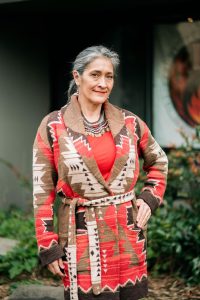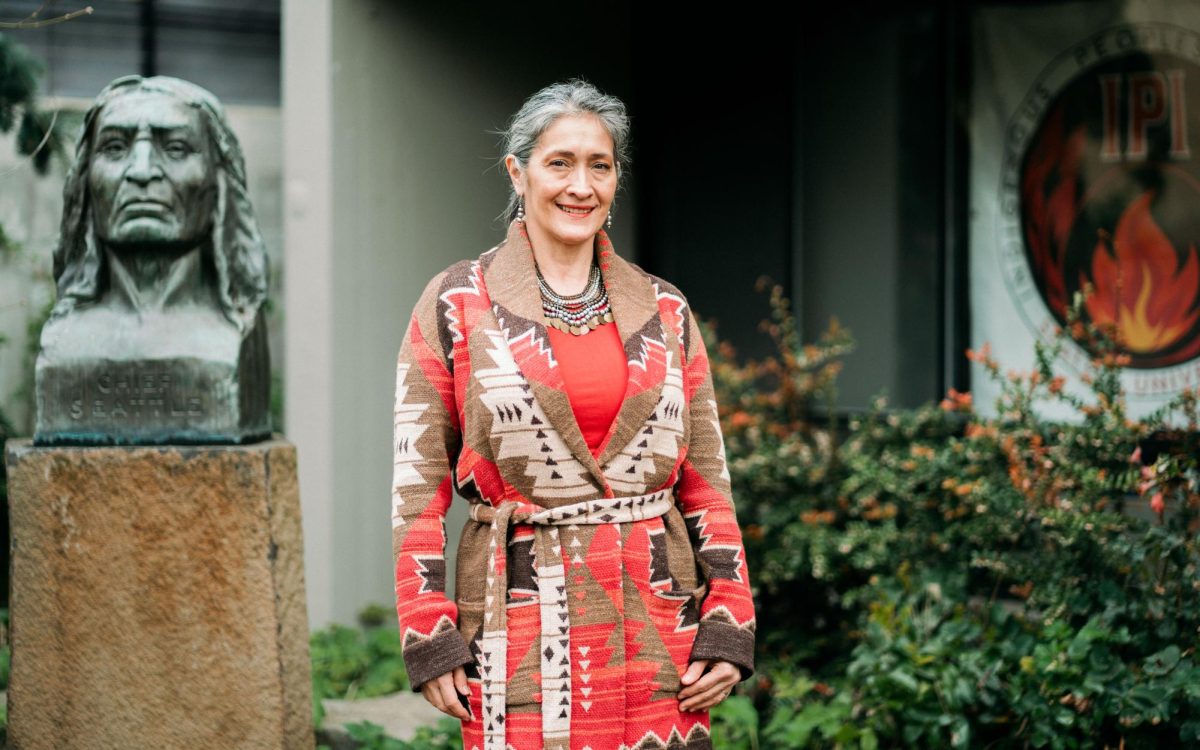
Jill La Pointe, a Seattle University Pastoral Leadership graduate and renowned scholar and activist, is returning to campus as director of the Indigenous Peoples Institute.
La Pointe has expressed a deep connection between her and her grandmother, the upper Skagit elder Vi Hilbert, whose life mission was to revitalize and preserve the Lushootseed language: a language in the family of the Salish that is spoken from Northern Oregon to central British Columbia.
“Growing up I used to listen to grandma telling stories in the language, and she would teach me words to say when I was a little kid and it wasn’t until I was an adult that I realized the tremendous contribution she made to our people and this Puget Sound region,” La Pointe said.
Hilbert’s life-long efforts of preservation have allowed La Pointe along with many others to become significantly acquainted with the Lushootseed language; a mission that continues to live on with La Pointe.
“I knew it was her work, it was her life’s work and she was very passionate about it but it wasn’t until a few years back when she was still living I believe, there’s a storyteller by the name of Roger Fernandez who commented when we were at a gathering at the Seattle art museum in the mid-2000s. Roger said, ‘Anybody today who speaks Lushootseed most likely either learned it from Vi or from somebody who learned it from Vi,’” La Pointe said.
While attending the University of Washington, La Pointe was able to be around and spend a great deal of time with her grandmother who extensively taught courses in the Lushootseed language and literature.
“And you would think teacher’s pet but no I was held to a slightly higher standard because she expected more of me. It was the Lushootseed language class which was a three-quarter series, and I only took it for the first two quarters because I had an opportunity for an internship so I did that. But I also took her literature class, and that was a lot of fun too,” La Pointe said.
As Hilbert was both influential in her personal life and academics, La Pointe expressed that the efforts of her grandmother to preserve culture has not only helped her grow but develop a deep appreciation for the legacy she left behind.
After receiving her master’s degree, La Pointe reflected on how eager she was to begin leading a career dedicated to supporting others. Similarly to her grandmother, La Pointe has spent a majority of her career working closely with Indigenous tribes.
“I wanted to get out and put my skills to work. I just wanted to get out and serve the people, and that’s why I went into social work. Some wonderful people had helped me through some very challenging times in my life and I thought that’s what I wanna do when I grew up, so I spent the next 30 years doing social work with native youth,” La Pointe said.
La Pointe has worked with a range of different non-profits and tribes including the United Indians of All Tribes Foundation, a United Indians youth home, the Muckleshoot tribe in their group homes as well as the upper Skagit and Snohomish. She has also held state jobs where she worked closely with Indian Child Welfare and then went back to the University of Washington to teach in the School of Social Work from 2007 to 2015.
Since 2006, she has been the director of Lushootseed Research, a non-profit organization that was founded in 1983 and aims to preserve and sustain the language.
When speaking of her connections to Seattle U, they stretch back all the way to 2006 when her partner, John La Pointe, attended the university. She and her husband formed a cherished bond with Father Pat Twohy as he was John’s spiritual advisor. The both of them were also in the same cohort during her post-graduate program which she took here at Seattle U.
Now being able to return to Seattle U as the new IPI director, La Pointe expressed that she looks forward to what the role will bring her, and that getting to reside in a space that feels so close to home holds deep meaning to her.
“It felt like such a wonderful blessing and opportunity, right here next door to the building named after my grandmother, so I feel her spirit here a lot with us and I think so dearly of Father Pat and how much he wanted this program to be here and be successful,” La Pointe said.
With gratitude, La Pointe looks forward to her first few months as director and is excited to be able to provide support to the native community at Seattle U.














Melanie Sumersille
Apr 19, 2024 at 5:29 pm
Great to read. Reminds you how important legacy (and grandparents) are!
Gene Zalbert
Apr 18, 2024 at 11:25 am
Very interesting article